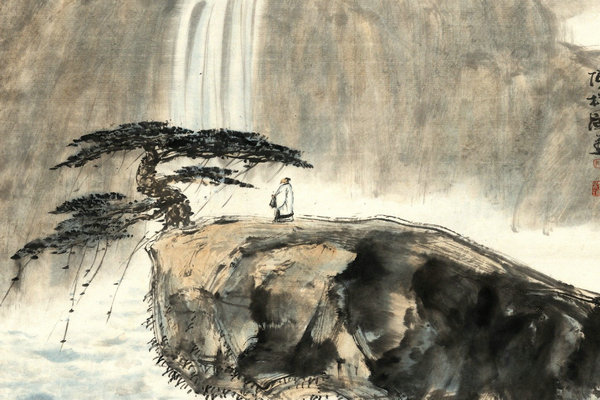Pronounced Dao De Jing, its literal translation is closest to “The Book of Morality” (“Dao” meaning The Way, “De” meaning Virtue, and “Jing” meaning classic/scripture). Written 2,500 years ago by Lao-tzu, Confucius’ student, it’s original purpose was to help guide politics in a struggling China. Its impact reaches far beyond politics though. It’s been widely read throughout history, being the second most translated book of all time behind the Bible.
The book itself is composed of 81 verses. Each verse is only a few lines long filled with abstract, and paradoxical bits of wisdom. The book is emphasizing learning to read between the lines. The find the quiet white areas both in its pages and in our lives.
In reading it, one feels as if they are transported to the windy mountains of China pondering life’s most difficult questions. The topic in question, the Tao, is in a way the essence of God. It is not something that can be described, only felt. “The Tao that can be named, is not the Tao… It is both named and nameless” – The 1st Verse.
The times I come closest to the Tao is one of quiet contentment when I’m in a flow state. By this I mean when I’m playing golf and I’m not trying, but at the same time, I’m focused. Or when I start writing and I don’t have to think, the words just come out. It’s in these moments where I feel I’m drawing inspiration for my action directly from my source/soul. Consequently, this is when I feel my best work is done. “To know the way, understand the greatness within yourself” – The 25th Verse. Next time you find yourself in a flow state when you’re running, writing, or even cleaning, you’ll know what the Tao truly is.
The Tao is here as a guide in asking ourselves who we really are, where do we come from, and what are we put here to do. By releasing our ego and getting out of our own way, we begin to answer these questions. Use this book to have a deeper, more meaningful understanding and appreciation for what is around you.

